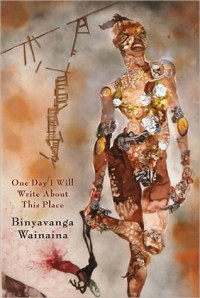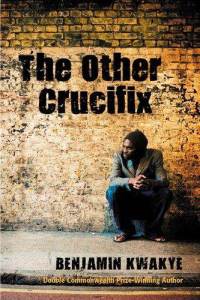 I have these three works-in-progress — melancholic short stories of people in search of something and hoping that some place (other than where they are) will give them that thing. The protagonists are all Africans, they are all displaced (away from home), and two have become immigrants in the United States. I recently workshopped one of these pieces at a two-week creative writing program. One of the workshop instructors suggested that I read Dinaw Menegestu’s The Beautiful Things That Heaven Bears as a way to see how a narrative about Africans living in the U.S. could be constructed.
I have these three works-in-progress — melancholic short stories of people in search of something and hoping that some place (other than where they are) will give them that thing. The protagonists are all Africans, they are all displaced (away from home), and two have become immigrants in the United States. I recently workshopped one of these pieces at a two-week creative writing program. One of the workshop instructors suggested that I read Dinaw Menegestu’s The Beautiful Things That Heaven Bears as a way to see how a narrative about Africans living in the U.S. could be constructed.
I was a bit hesitant at first, given the book’s low rating on GoodReads, but browsing the reviews gave some insight as to why it only averaged 3.5/5. Quite a few people have very specific expectations of what an immigrant narrative should be. One reviewer stated that the first person narration didn’t work because it was too insightful for someone who was a shopkeeper. Another reviewer didn’t like how downbeat the novel was. There was another reader who was frustrated that the protagonist could not help himself enough, that it was his own mind holding him back, not his environment. You get the picture. These people want the ultimate immigrant narrative. The escape of death in a dark country, the commitment to work hard regardless of circumstance in the new country, then the humble yet exciting rise to success or some other type of fulfillment. They want something insightful and evocative, but not in the voice of the actual man who has become an immigrant.
Mengestu disrupts these expectations with his debut novel. His style of writing is both uncomplicated and unassuming but his characters are in no way as simple. They are navigating displacement on multiple levels. The protagonist, Sepha Stephanos was forced to leave Ethiopia during the revolution. Nearly two decades later, he plays a Name That African Coup Leader game with two of his other friends who are also navigating displacement. Joseph, who is from the Congo, works as a waiter at a restaurant called The Colonial Grill. Kenneth, originally from Kenya, works as an Engineer. The three men met while working at the Capitol Hotel. Now, they often gather in the shop that Stephanos owns — a convenience store located in the gentrifying Logan Circle neighborhood of Washington, D.C.
Mengestu idealizes nothing in the narrative. Even Sepha’s attempts at romance are far from any romanticized notions of love. Judith is a single mother and professor of American history currently on sabbatical. She and her daughter have moved into a large, reconstructed home in the Logan Circle. Sepha and Judith are near opposite ends of the economic class spectrum, yet equally matched in their loneliness. Together they are awkward and uncomfortable. As a reader you may want them to win, just as you may want your own unsuitable relationships to win. You know it’s not a good thing for anyone involved. Not to spoil the story, but the narrative around the romance is as real as every other aspect of the novel.
I don’t know that this novel has directly impacted my work, other than to reaffirm that “immigrant” is a label that doesn’t characterize one’s identity in any universal way (or maybe not at all). If I were to put (black) immigrant narratives on a (non hierarchical) scale of 1 to 5, 1 being a novel like Teju Cole’s Open City and 5 being like Taiye Selasi’s Ghana Must Go. I think The Beautiful Things That Heaven Bears lingers around a 2. If you like quiet stories with many layers of subtext, you’d appreciate the narrative that Mengestu has created.
I picked up this copy from my local library. You can purchase a copy from
Barnes & Noble
IndieBound
Powell’s
 As was the case with other nations coming out of Western occupation or colonialism, the Dominican Republic during the 1960s was marked by political instability. Before the United States’ second occupation of the nation in 1965, Dominicans saw multiple changes of power initiated by assassination, election, and coup. Many who left their country during this period, did so for political reasons.
As was the case with other nations coming out of Western occupation or colonialism, the Dominican Republic during the 1960s was marked by political instability. Before the United States’ second occupation of the nation in 1965, Dominicans saw multiple changes of power initiated by assassination, election, and coup. Many who left their country during this period, did so for political reasons.






